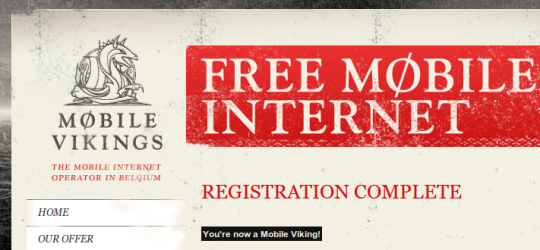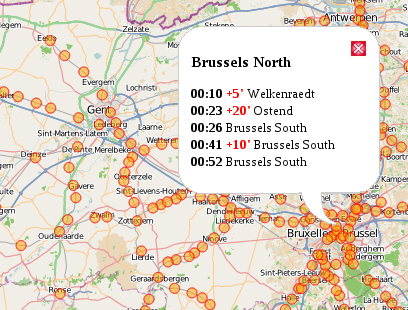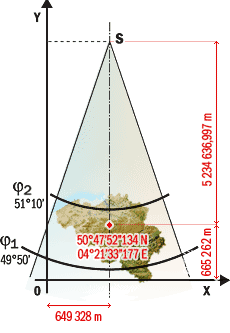Mobile Vikings was my second mobile phone operator. Before that I was a pre-paid Base customer. When I switched, as a student, to Mobile Vikings, I kept paying the same amount of money (€15/month) for almost unlimited text messages and got free Internet with it: 2GB a month. The step was as logical as can be: I get more for the same money.
I’ve changed. Mobile Internet changed how, where, how long, with whom… I work/study. It didn’t only change the way I work, it also made me start contributing to iRail to change the way we plan our travels: Just in time using a smart-phone, not 1 day in advance when you can be doing more interesting things instead of planning. Mobile Vikings made me think free Internet everywhere is an evidence.

In February I started my own company together with @Tuinslak called FlatTurtle. We are developing an architecture which will change the way digital signage interacts with users than it does now, but let’s not go into that. Yeri (Tuinslak) and I thought it would be better to change to a “more professional” network and get invoices and sh… stuff. So we tried to sign up for a new sim-card through Proximus’ e-service platform. That didn’t work, so we decided to go to one of these Belgacom Centers to make us a Proximus client.
The network is better. I agree. But it’s still not what you’d call a problem-free experience: you still can’t have a call during a trainride, and the network is still disconnecting from time to time. I have the unlimited business bundle (“fixed” price €80 without VAT), which allows you to call without limits. And you have 1GB of Internet, and unlimited text messages. So apart from the unlimited calling, I’m not getting a better experience for a lot more money. If you want numbers: I’m paying on average €110/month (without VAT) as I’m regularly abroad having to take calls as well which you have to pay on top of the “fixed” price, and pay for the bus by sms.
Today I got a text message. I have 90MB remaining to use during the rest of the month (3 weeks). It’s true, this 1.5 week I have been on the train a lot (had to go to Hasselt, Antwerp, Leuven and Brussels a couple of times) so I have been tethering. I went to the e-services platform to check on my use and to maybe upgrade my package to something more than only 1GB. This seems impossible. Or at least I didn’t find out how to work with it.
I was used to Mobile Vikings: you send a tweet to @mobilevikings at 11pm and you get an answer immediately. Even if the tweets contained angry messages about technicalities*, you can still get understanding replies. Mobile Vikings’ site is impeccable. I had no idea however how to contact Proximus so I tried to old way: calling the center, which I gave up after 10 minutes (sorry, I’m not giving up on certain standards of living I acquired before).
* With Proximus, I didn’t even had to think of these, as my expectations are lower: do you expect Proximus to provide an API for their advanced users?
Changing back to Mobile Vikings, I expect to pay ~€80/month. VAT,bus & parking tickets, + calls… included.

I’m now a Mobile Viking. And I’m damn glad I am.
– Pieter




